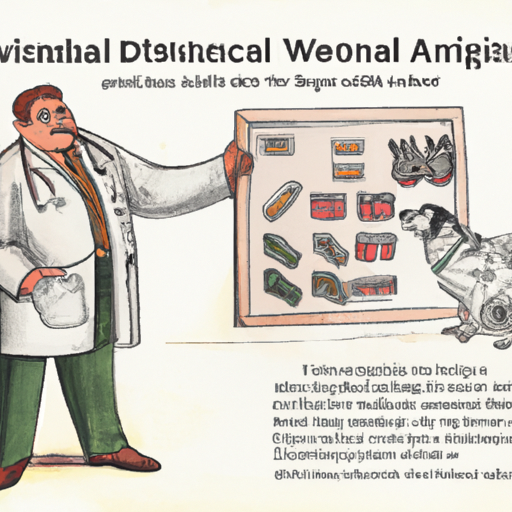As a caring pet owner, it can be alarming when your beloved four-legged friend is dealing with swelling. In such instances, you can take several actions to help your pet find relief. This guide will provide you with valuable information on what to give dogs for swelling.
H2: Understanding the Causes of Swelling in Dogs
Firstly, it’s essential to understand what could cause swelling in your dog. Swelling could be a symptom of various conditions, such as an allergic reaction, an injury, an infection, or a chronic disease like arthritis.
- Allergic reactions: Dogs can be allergic to various substances, including certain foods, insect bites, or even common household items.
- Injuries: Swelling often occurs after a physical injury, such as a sprain or fracture.
- Infections: If your dog has an infection, the affected area may swell due to your dog’s immune response.
- Chronic diseases: Conditions such as arthritis can cause chronic swelling in your dog’s joints.
H2: Natural Remedies for Swelling
There are several natural remedies that you can use to help reduce your dog’s swelling:
- Cold compresses: Applying a cold compress to the swollen area can reduce inflammation and provide instant relief.
- Turmeric: This spice has anti-inflammatory properties and can be mixed with your dog’s food.
- Omega-3 fatty acids: These nutrients, found in fish oil, can reduce inflammation throughout the body.
| Natural Remedy | Usage |
|---|---|
| Cold compresses | Apply to the swollen area |
| Turmeric | Mix with dog’s food |
| Omega-3 fatty acids | Administer as a supplement |
H2: Over-the-Counter Medications for Swelling
In some cases, over-the-counter medications may be necessary to reduce swelling. However, you should always consult your vet before giving your dog any new medication.
- Antihistamines: These are often used for allergic reactions, as they can reduce swelling and itching.
- Non-Steroidal Anti-Inflammatory Drugs (NSAIDs): These can be used for short-term relief from swelling and pain.
H2: When to Consult a Vet
While mild swelling can often be treated at home, it’s crucial to know when to seek professional help. If your dog’s swelling is severe, persists for more than a few days, is accompanied by other worrying symptoms, or if your dog has a pre-existing condition, you should consult with a vet immediately.
H2: Preventing Swelling in Dogs
While not all swelling can be prevented, there are some measures you can take to protect your dog:
- Regular exercise: Regular, moderate exercise can help maintain healthy joints and reduce the risk of injury.
- Healthy diet: A balanced diet can help prevent allergic reactions and maintain overall health.
- Regular vet check-ups: Regular vet visits can help detect any potential issues early on.
Frequently Asked Questions
Q: Can I give my dog human medication for swelling?
A: Some human medications, like certain NSAIDs, can be toxic to dogs. Always consult your vet before giving your dog any medication.
Q: How can I tell if my dog’s swelling is serious?
A: If the swelling is severe, persists for more than a few days, is accompanied by other symptoms like loss of appetite or lethargy, or if your dog has a pre-existing condition, consult a vet immediately.
Q: Can diet affect my dog’s swelling?
A: Yes. Some foods can cause allergic reactions in dogs, leading to swelling. A balanced diet can also help maintain overall health and reduce inflammation.
In conclusion, there are several ways to address swelling in dogs, ranging from natural remedies to over-the-counter medications. Remember, though, that severe or persistent swelling warrants a visit to the vet. Your attentiveness and care can make a significant difference in your dog’s comfort and health.



